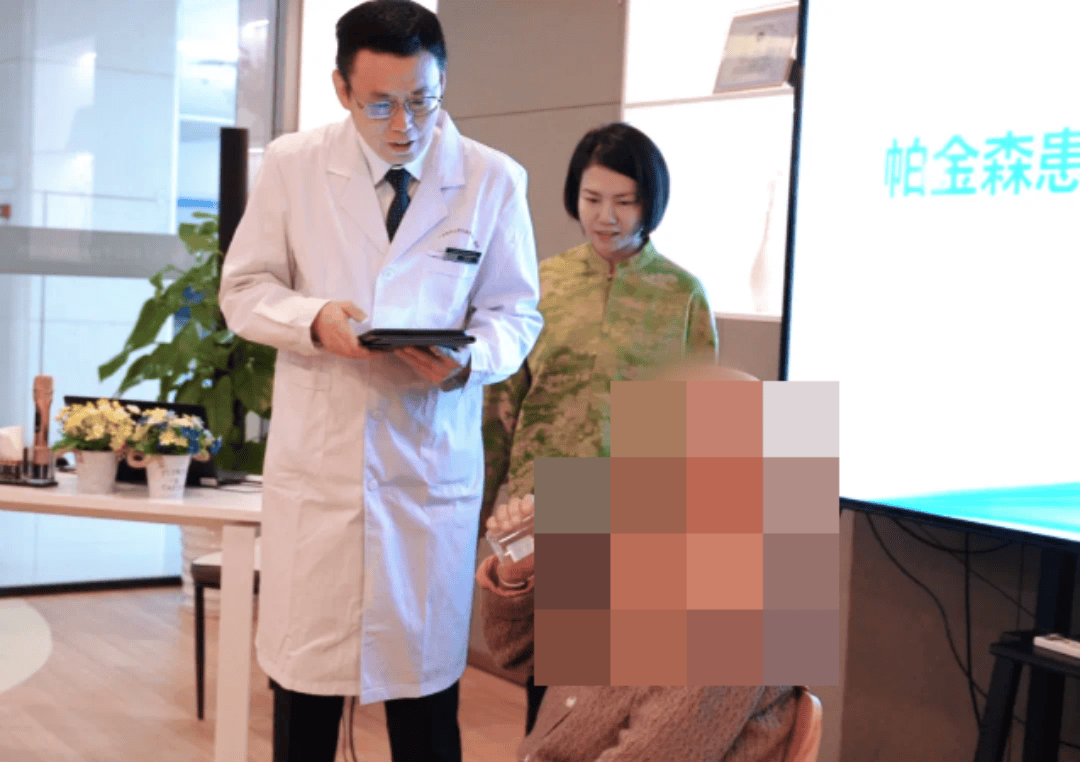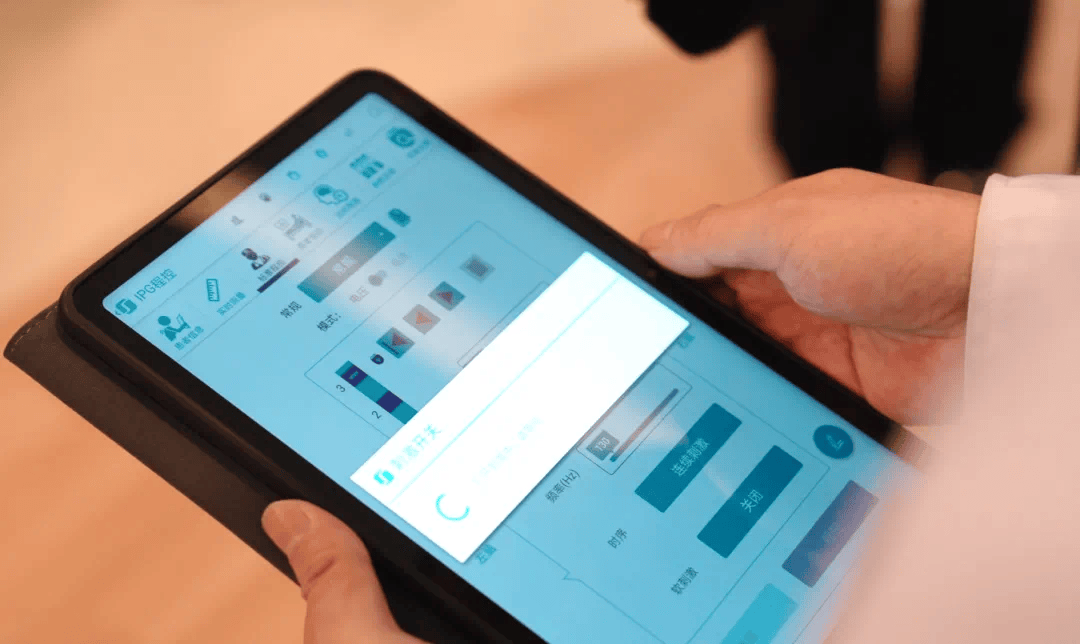On March 19th, Dr. Hao Shaocai, Head of the Neurosurgery Department at the First Dongguan Affiliated Hospital of Guangdong Medical University, conducted precise remote programming for a patient with Parkinson's disease who underwent deep brain stimulation (DBS) surgery. This marks the first successful remote programming of DBS in Dongguan.

73-year-old Mrs. Jin, who comes from Ningxia, expressed her long-standing struggle with Parkinson's disease. She has experienced difficulties in everyday tasks, struggling to take care of herself.
In early December 2023, accompanied by her family, Mrs. Jin traveled from Ningxia to Dongguan, and underwent a series of examinations and evaluations conducted by Dr. Hao's team. After that, it was determined that she was eligible for DBS surgery.
According to Dr. Hao, the surgery, commonly known as "deep brain stimulation" (DBS) implantation, involves the precise implantation of an electrode with four contact points into deep brain nuclei. By externally controlling the stimulation parameters, the electrical activities of the neural nuclei or circuits can be influenced, making it possible to control the patient's motor symptoms.
On December 8th, 2023, with the collaborative efforts of a multidisciplinary team at the hospital, the brain pacemaker was successfully implanted in Mrs. Jin. Post-surgery, she recovered well without any adverse reactions. One month later, Mrs. Jin returned for her scheduled follow-up visit for the activation of the pacemaker. After that, she was able to lift her arms, move her fingers, stand up independently, and walk without difficulty. Her Parkinson's symptoms were significantly improved.

However, a recent fall resulted in the recurrence of Mrs. Jin's symptoms. Considering that she was far away in Ningxia, Dr. Hao's team provided remote adjustment to the DBS stimulation parameters via the Internet to further alleviate her symptoms.
During the remote programming on the 19th, Dr. Hao comprehensively reviewed Mrs. Jin's medical records, treatment progress, and daily symptom diaries through the remote system, and also observed her movements via live video.
Dr. Hao mentioned that the control device within Mrs. Jin's brain was connected to an app on the smartphone, allowing both the patient and her family members to check the battery level anytime. After evaluating her condition through the remote system, the doctor is able to adjust the parameters within the system's visual interface. Regardless of the distance, as long as the network is connected, the doctor can perform the remote adjustment of parameters, relieving the patient from physical pain while saving them the trouble of traveling.
Source:Yangcheng Evening News
东莞医生远程治疗2000公里外患者
3月19日,在广东医科大学附属东莞第一医院,隔着电脑屏幕,该院神经外科主任郝少才为2000公里外宁夏的一位帕金森病脑起搏器术后患者进行了精准的远程调控。据了解,这也是东莞首次完成DBS远程精准调控。
73岁的金阿姨来自宁夏,她表示自己已被帕金森病困扰多年,平时不仅坐立、行走都困难,连生活几乎不能自理。
2023年12月初,在亲戚朋友的介绍下,金阿姨由家人陪同从宁夏来到东莞,郝少才团队对金阿姨进行了一系列检查和评估,确定金阿姨具备做脑深部电极植入(DBS)手术的指征。
郝少才介绍,这个手术俗称“脑起搏器”植入术,在脑内深部核团精准植入带有四个触点的电极,通过体外程控设定电刺激参数影响神经核团或神经环路的电活动,进而达到控制患者运动症状的目的。
通过医院多学科团队合作,2023年12月8日,医护人员将脑起搏器植入金阿姨体内,术后恢复良好,无不良反应。一个月后,金阿姨如约前来“顺利开机”。随后,金阿姨尝试着抬起手臂、活动手指、自主站起、走路等动作,都能顺利完成,帕金森症状得到极大的缓解。
然而,不久前,金阿姨不慎摔倒导致病情反复,她远在宁夏,来回奔波无疑增加了她的负担。因此,郝少才团队通过互联网,给予金阿姨远程调整脑起搏器刺激参数,帮助患者进一步缓解症状。
在19日远程调控现场,郝少才通过远程系统全面了解金阿姨病历情况、治疗过程、记录每日感受的病程日记,实时视频直观看到了金阿姨的运动情况。
郝少才说,此前金阿姨体内的控制器已经和手机App绑定,患者和家属可以在手机里面随时查看电量,医生通过远程系统在可视化环境下对其评估后,直接在系统内调整参数。无论距离多远,只要有网络,便可实现远距离程控调整参数,为患者减轻身体痛苦的同时也解决了奔波之苦。
文 | 姚梓婷
图 | 受访者供 叶何湘
翻译 | 洪婷返回搜狐,查看更多
责任编辑: